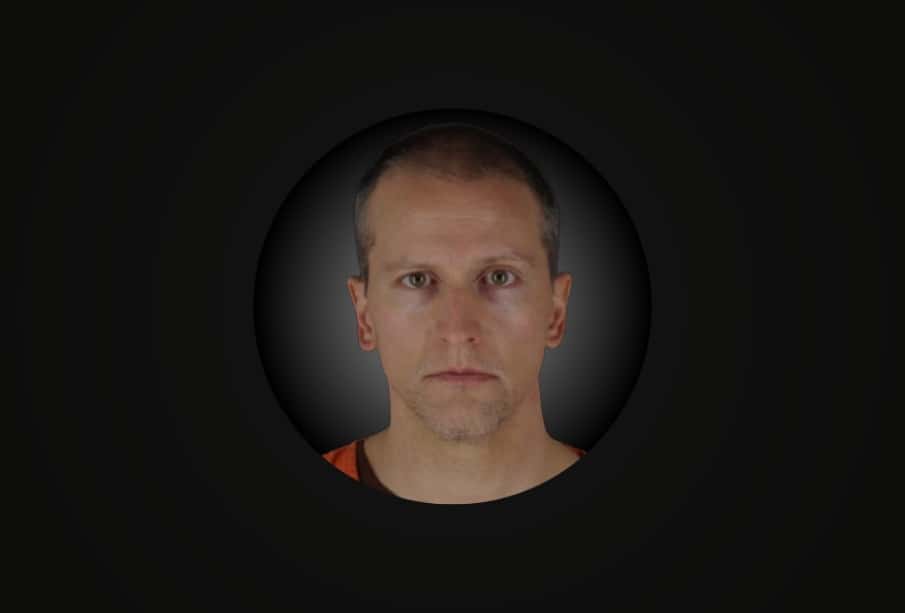On Friday, former Minneapolis police officer Derek Chauvin was sentenced to 22.5 years in Oak Park Heights maximum security prison for the murder of Houston native George Floyd.
During the sentencing on Friday, the prosecution and defense both provided testimony to Hennepin County Judge Peter Cahill.
Eric Nelson, Chauvin’s attorney, argued his client should get probation or the lowest possible sentence. Nelson also said that his client was unaware he was even committing a crime and in his mind he was “performing his lawful duties” during the encounter with Floyd.
Minnesota prosecutors asked the court to give Chauvin the maximum possible sentence of 360 months and look at four aggravating factors that contributed to the case.
The four factors are Chauvin abusing his position of trust and authority, treating George Floyd with particular cruelty, children being present at the time of the crime, and committing the crime as a group with the four other officers charged for Floyd’s death.
At the sentencing, Cahill announced that he wrote a 26-page memorandum opinion to justify his concluded sentence of 270 months. Cahil wrote that he used the Minnesota Sentencing Guideline Commission data which showed that the average departure imposed on defendants with no criminal record was 278.2 months.
In his opinion, the court based Chauvin’s sentencing on two of the four factors.
Cahill wrote that Chauvin abused his position of trust and authority when he positioned Floyd in a prone position and knew the potential risk of asphyxia. According to Cahill, Chauvin also abused his position of power by not rendering aid to Floyd and continuing to kneel on Floyd’s neck after officers couldn’t find his pulse.
Cahill also wrote that Chauvin treated Floyd with a particular cruelty and was indifferent in his plea for life. Furthermore, Cahill wrote that Chauvin’s actions were beyond inflicting bodily harm, but killed Floyd slowly over the course of ten minutes. According to the transcripts of the video, Floyd said “I can’t breathe” over 20 times with Chauvin dismissing his pleas.
Despite the prosecution arguing that four underage women, who testified at the trial, were traumatized witnessing the killing of George Floyd, Cahill said there was not enough evidence to “present any objective indicia of trauma.” Since the four women were not forced to stay on the scene and could’ve left at any time, Cahill said Chauvin’s sentencing can’t be based on children being present at the crime.
In 2012, according to Cahill, the Minnesota Sentencing Guidelines changed language that will also not support Chauvin receiving the maximum sentence.
The Minnesota statute now states that “the offender committed the crime as part of a group of three or more offenders who all actively participated in the crime.” Cahill said since the three other officers had not intended to be “offenders” there is not enough evidence to sentence Chauvin based on this factor.
At the sentencing, family members of Floyd also testified and asked for justice.
Philonese Floyd, George’s younger brother, said the family needs closure and a maximum sentence will help.
“My family and I have been given a life sentence,” Floyd said. “We’ll never be able to get George back.”
Brandon Williams, Floyd’s nephew, said Chauvin killed George and everyone saw it.
“Words simply can not express the pain, anguish, and suffering that our family and friends have endured since George’s murder,” Williams said. “It is simply unimaginable.”
Additionally, Terrence Floyd, George’s older brother, asked Chauvin what was going through his mind while he was on his brother’s neck.
“When you knew that he posed no threat anymore and he was handcuffed why didn’t you at least get up,” Floyd said. “Why did you stay there?”
In addition to in-person testimony, video footage of Ginna Floyd, Floyd’s seven-year-old daughter was played in the courtroom.
When asked what Gianna would say to her daddy if she could speak to him she said “I miss you and I love you.”
In addition to 270 months, Chauvin is also facing federal charges from the Department of Justice.
Kennedy is a recent graduate of the University of St.Thomas in Houston where she served as Editor-in-Chief of the Celt Independent. Kennedy brings her experience of writing about social justice issues to the Texas Signal where she serves as our Political Reporter. She does everything from covering crime beats, Texas politics, and community activism. Kennedy is a passionate reporter, avid reader, coffee enthusiast, and loves to travel.





